In healthcare workforce management, integrating well-being, data-driven decisions, technology, diversity, and continuous learning builds resilient, high-performing teams.
In the ever-evolving landscape of healthcare, workforce management stands as a critical pillar shaping the industry's future. As organizations strive to adapt to dynamic challenges and technological advancements, several key trends are emerging, redefining how healthcare HR professionals attract, retain, and develop their workforce.
1.Emphasis on Employee Well-being
In an era where burnout and stress are prevalent in the healthcare sector, workforce management is increasingly focusing on employee well-being. Organizations are implementing wellness programs, flexible work arrangements, and mental health support to foster a healthy and resilient workforce. Prioritizing well-being not only improves employee satisfaction but also enhances patient care by ensuring a more engaged and motivated staff.
2. Data-Driven Decision-Making
The use of data analytics in workforce management is gaining prominence. HR professionals are leveraging analytics tools to assess staffing needs, optimize scheduling, and identify trends in employee performance. Data-driven insights enable healthcare organizations to make informed decisions, ensuring efficient resource allocation and enhancing overall workforce productivity.
3.Adoption of Technology for Streamlined Processes
Technology is revolutionizing how healthcare HR manages its workforce. From automated scheduling and applicant tracking systems to virtual onboarding processes, the adoption of technology is streamlining administrative tasks. This not only saves time but also allows HR professionals to focus on strategic initiatives, such as talent development and succession planning.
4.Focus on Diversity, Equity, and Inclusion
Workforce management trends in healthcare reflect a growing emphasis on diversity, equity, and inclusion (DEI). Organizations are recognizing the importance of fostering a diverse workforce that mirrors the communities they serve. Efforts to address biases in hiring practices, promote inclusivity, and create equal opportunities for career advancement are becoming integral to workforce management strategies.
5.Rise of Remote Work and Hybrid Models
The COVID-19 pandemic has accelerated the adoption of remote work in healthcare. Workforce management is adapting to accommodate remote and hybrid models, providing flexibility for employees. This trend not only expands the talent pool by allowing access to remote professionals but also promotes a better work-life balance, contributing to increased job satisfaction and retention.
6.Continuous Learning and Development Opportunities
Healthcare professionals thrive in environments that support continuous learning. Workforce management trends include a focus on providing ongoing training and development opportunities. From upskilling programs to mentorship initiatives, organizations are investing in the growth of their employees, ensuring they remain agile in the face of evolving healthcare challenges.
As healthcare workforce management undergoes a paradigm shift, these trends underscore the need for adaptability and innovation. Navigating the future of healthcare HR requires a strategic approach that integrates employee well-being, data-driven insights, technology adoption, diversity and inclusion, flexible work models, and a commitment to continuous learning. By embracing these trends, healthcare organizations can build resilient, high-performing teams ready to meet the demands of the ever-changing healthcare landscape.
Key Trends in Healthcare Workforce Management (2023)
Workforce Shortage and Burnout: The healthcare sector is experiencing a significant talent shortage, with nearly half a million workers lost since the COVID-19 pandemic began. This has led to widespread burnout among clinicians, with almost half reporting high levels of stress.
Financial Challenges: Major health systems have seen a decline in operating margins from October 2020 to January 2023. Healthcare leaders are grappling with increased costs and inflation, impacting financial sustainability.
Use of Analytics in Staffing: Healthcare organizations are increasingly using analytics to manage staffing challenges, focusing on factors like work intensity and job satisfaction to improve retention and reduce turnover.
Political Impact on Healthcare Policies: The political environment, including the agendas of different administrations, is influencing healthcare policies and practices, affecting areas such as patient support, innovation, and cost transparency.
Patient Engagement and New Care Models: With the emergence of non-traditional care providers, there's a growing need for health systems to re-evaluate patient engagement strategies to maintain trust and competitiveness.
Shift to Value-Based Care: The healthcare industry is slowly transitioning to value-based care models, requiring adaptations in physician accountability and patient care strategies.
Enforcement of Price Transparency Rules: Hospitals are now mandated to make their standard charges public, with a focus on enforcing these price transparency rules in 2023.
These trends underscore the evolving challenges and opportunities in healthcare workforce management, highlighting the need for innovative strategies to address staffing shortages, financial pressures, and changing patient care dynamics.
References
- Deloitte US. "Health Care Workforce Resilience Powered by Analytics." Available at: Deloitte
- AHA. "AHA Releases 2023 Health Care Workforce Scan." Available at: AHA
- Health Catalyst. "2023 Healthcare Trends: How to Navigate this Pivotal Year." Available at: Health Catalyst





